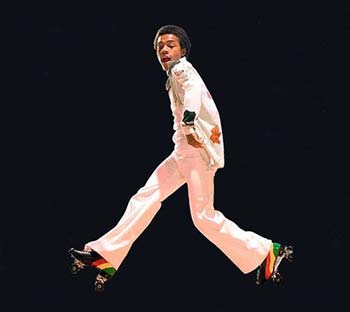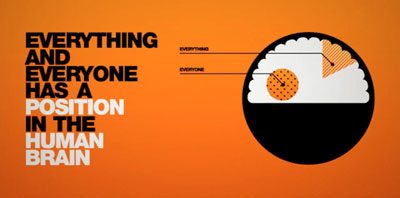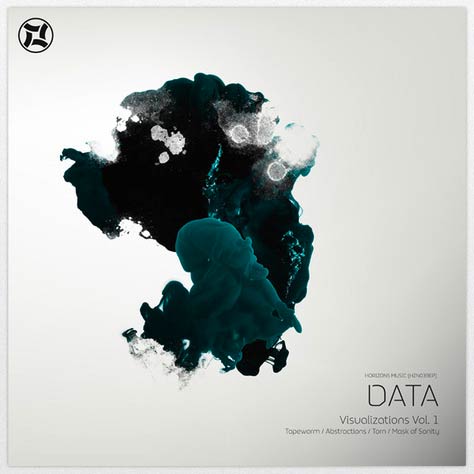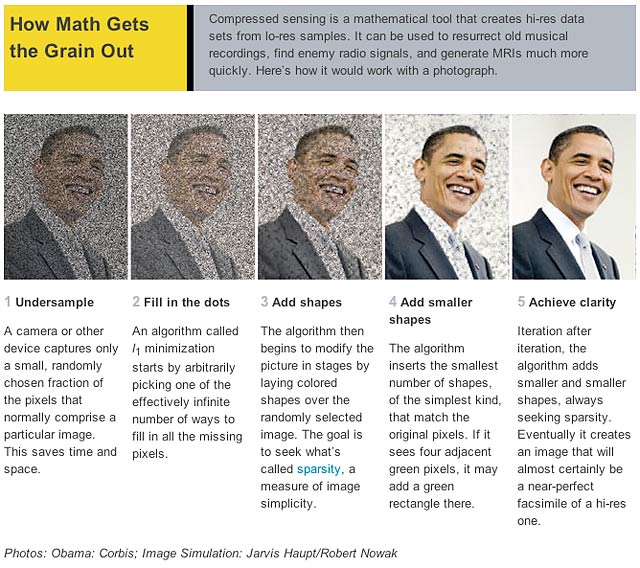
|
|
|

Two years ago, when the FBI was stymied by a band of armed robbers known as the “Scarecrow Bandits” that had robbed more than 20 Texas banks, it came up with a novel method of locating the thieves.
FBI agents obtained logs from mobile phone companies corresponding to what their cellular towers had recorded at the time of a dozen different bank robberies in the Dallas area. The voluminous records showed that two phones had made calls around the time of all 12 heists, and that those phones belonged to men named Tony Hewitt and Corey Duffey. A jury eventually convicted the duo of multiple bank robbery and weapons charges.
Even though police are tapping into the locations of mobile phones thousands of times a year, the legal ground rules remain unclear, and federal privacy laws written a generation ago are ambiguous at best. On Friday, the first federal appeals court to consider the topic will hear oral arguments (PDF) in a case that could establish new standards for locating wireless devices.
{ CNET | Continue reading }
spy & security, technology |
March 4th, 2010

Mattel recently conducted an online poll asking girls everywhere to choose Barbie’s next occupation from the following choices — surgeon, architect, news anchor, environmentalist and computer engineer.
The overwhelming choice among the girls was news anchor. But adults in the blogosphere, on Twitter and Facebook launched their own campaign for computer engineer Barbie. Mattel relented and decided to go with both, news anchor and computer engineer Barbie.
The Barbie brouhaha points to a key conundrum today when it comes to women and professions in science and technology. Many people see a need for more females in so-called STEM professions (science, technology, engineering and math). But fewer and fewer young women seem to be gravitating to such jobs.
{ MSNBC | Continue reading }
economics, technology |
March 4th, 2010

It doesn’t matter if you go running every morning, or you’re a regular at the gym. If you spend most of the rest of the day sitting — in your car, your office chair, on your sofa at home — you are putting yourself at increased risk of obesity, diabetes, heart disease, a variety of cancers and an early death. In other words, irrespective of whether you exercise vigorously, sitting for long periods is bad for you. That, at least, is the conclusion of several recent studies.
{ NY Times | Continue reading }
health |
March 4th, 2010
U.S., smoking |
March 4th, 2010

Shoe tossing, the act of using shoes as improvised projectiles or weapons, is a constituent of a number of folk sports and practices. Today, it is commonly the act of throwing a pair of shoes onto telephone wires, powerlines, or other raised wires.
{ Wikipedia | Continue reading }
photos { Wooster Collective | via copyranter }
leisure, visual design |
March 4th, 2010

A pesticide that is used around the world can turn male frogs into egg-producing females, a new study has shown.
The pesticide, atrazine, has infiltrated water supplies and can travel to areas hundreds of kilometers from the place where it was originally used. Some research has suggested that atrazine can affect the development of amphibians, but these findings have been disputed.
{ Conservation magazine | Continue reading }
amphibian, economics, water |
March 4th, 2010

Australia’s vile and poisonous plague of cane toads may finally have met its match — and it comes in a tin of cat food.
After years spent trying to batter, gas, run over and even freeze the toxic toads out of existence, scientists say just a dollop of Whiskas could stop the warty horde.
The cat food attracts Australia’s carnivorous meat ants, which swarm over and munch on baby toads killing 70 percent of them.
{ AFP/Physorg | Continue reading }
The most poisonous animal substance is batrachotoxin, produced by the poison arrow frog of South America. As little as the weight of two grains of table salt will turn your lights out for good.
{ What’s the fastest-acting, most lethal poison? | The Straight Dope | Continue reading }
amphibian, poison, science |
March 4th, 2010

Paradoxically we initially like narcissists more because of their exploitative, entitled behaviour—but it doesn’t last long. (…)
There are all sorts of paradoxes in the way narcissists behave. Here are three that this research helps explain:
1. Why do people continue to behave selfishly when it only ruins their relationships with others?
2. Why do narcissists devalue others when they are so dependent on them for admiration?
3. Why don’t narcissists spot the cycle of early attraction followed by rejection?
The first two are partly explained by the fact that narcissistic behaviour is, at first, attractive to other people. Behaving selfishly seems to bring them a rush of admiration which they get addicted to, while devaluing others when the inevitable rejection comes, covering it up by searching out new people to worship them.
The reason narcissists fail to spot this cycle may well be that friends and partners never hang around long enough to tell them in such a way that they actually believe it and want to do something about it.
{ PsyBlog | Continue reading }
graphic design { Casper Sormani }
psychology, weirdos |
March 4th, 2010

Sometimes you hear a word for the first time and think: “Of course.” How better to describe Paris Hilton than as a “celebutante” or the frequent tabloid target Alec Baldwin as “the bloviator”? (Thanks, New York Post!)
Now make room for “prehab.”
Prehab made its debut on Feb. 23, the handiwork of GlasgowRose, a commenter on Gawker, after a publicist for Charlie Sheen announced that the star of “Two and a Half Men” was entering rehab as a “preventative measure.”
{ NY Times | Continue reading }
A respected scientist set out to determine which drugs are actually the most dangerous — and discovered that the answers are, well, awkward. (…)
The list, printed as a chart with the unassuming title “Mean Harm Scores for 20 Substances,” ranked a set of common drugs, both legal and illegal, in order of their harmfulness - how addictive they were, how physically damaging, and how much they threatened society. Many drug specialists now consider it one of the most objective sources available on the actual harmfulness of different substances.
That ranking showed, with numbers, what Nutt was fired for saying out loud: Overall, alcohol is far worse than many illegal drugs. So is tobacco. Smoking pot is less harmful than drinking, and LSD is less damaging yet.
{ The Boston Globe | Continue reading }
Andy was one of my best friends. We hung out together several nights a week for over ten years. We used to go to Studio 54 — an amazing place.
{ Jerry Hall interview | Index magazine | Continue reading }
photo { Andy Warhol and Jerry Hall, Studio 54, NYC, late 70s }
Linguistics, drugs, food, drinks, restaurants, health, warhol |
March 4th, 2010
ideas, photogs |
March 4th, 2010

Scientists have proposed that the way food smells could possibly be related to the sounds we hear when we consume them.
They note that there could be a connection between smell and sound, a hybrid sense they call “smound.”
{ Discover | Continue reading }
artwork { Yves Klein, F 88, 1961 }
Linguistics, art, science |
March 4th, 2010

Women are up to nine times more likely to suffer from cold hands and feet than men, I read last week. We feel changes in temperature and the seasonal chill more. Did this surprise me? Not a bit . (…)
There are many theories as to why women suffer from this problem. Women have more evenly distributed fat layers, providing internal insulation. But while the result is that our blood supply favours protecting our core organs and trunk over our extremities, it means less blood flows to the hands and feet.
Men on the other hand have more heat-generating muscle mass, better supplied by blood vessels, increasing blood flow and, therefore, warmth.
Foot expert Margaret Dabbs says another reason why women’s feet in particular get colder than men’s is because our skin is thinner. (…)
Avoid alcohol or caffeine as both increase blood flow to the skin, so while you might feel warmer, your body is losing heat. (…)
Mood can influence our temperature - people who are lonely or socially excluded feel the cold more.
{ Daily Mail | Continue reading }
guide, health, science, temperature |
March 4th, 2010

The global economy is poised to enter a new phase of robust, dependable growth. Technological and economic historian Carlota Perez calls it a “golden age.” Such ages occur roughly every 60 years, and they last for a decade or more, part of a long cycle of technological change and financial activity.
This doesn’t mean that the world’s political and economic problems will go away. But whereas the details of long cycles vary, the overall pattern of progress remains the same: An economy spends 30 years in what Perez calls “installation,” using financial capital (largely from investors) to put in place new technologies. Ultimately, overinvestment and excessive speculation lead to a financial crisis, after which installation gives way to “deployment”: a time of gradually increasing prosperity and income from improved goods and services.
{ Policy Innovations | Continue reading }
I maintain that in the present environment there is no such thing as a return to self-sustaining growth. There will be no return to the supposedly normal conditions, which were in fact, from a historical point of view, highly abnormal, of the 1990s and 2000s.
What one needs is to set a strategic direction for renewal of economic activity. We need to create the institutions that will support that direction.
{ Interview with James K. Galbraith | MM News | Continue reading }
Financial bubbles are a way of life now. They can upend your industry, send your portfolio into spasms and leave you with whiplash. And then, once you’ve recovered, the next one will hit.
Or so you might think, as a veteran of two gut-wrenching market declines and a housing bubble over the last decade.
There’s plenty of reason to expect more surprises, given the number of hedge funds moving large amounts of money quickly around the world and the big banks making their own trades. (…)
If you want to better insulate yourself from bubbles — however often they may inflate — there are plenty of things you can do.
{ NY Times | Continue reading }
photo { Richard Avedon, Veruschka, dress by Bill Blass, New York, January 1967 }
related { Employment for adult males is at record lows | charts }
previously { A ‘doomsday cycle’ has infiltrated the economic system and could lead to disaster after the next financial crisis. }
avedon, economics, guide |
March 4th, 2010

Nearly the entire hit was recorded on closed-circuit TV cameras, from the time the team arrived at Dubai’s airport to the time the assassins entered Hamas military leader Mahmoud al-Mabhouh’s room. The cameras even caught team members before and after they donned their disguises. The only thing the Dubai authorities have been unable to discover is the true names of the team. But having identified the assassins, or at least the borrowed identities they traveled on, Dubai felt confident enough to point a finger at Israel. (Oddly enough several of the identities were stolen from people living in Israel.)
After Dubai released the tapes, the narrative quickly became that the assassination was an embarrassing blunder for Tel Aviv. Mossad failed spectacularly to assassinate a Hamas official in Amman in 1997— the poison that was used acted too slowly and the man survived—and it looks like the agency is not much better today. Why were so many people involved? (The latest report is that there were 26 members of the team.) Why were identities stolen from people living in Israel? Why didn’t they just kill Mr. Mabhouh in a dark alley, one assassin with a pistol with a silencer? Or why at least didn’t they all cover their faces with baseball caps so that the closed-circuit TV cameras did not have a clean view?
The truth is that Mr. Mabhouh’s assassination was conducted according to the book—a military operation in which the environment is completely controlled by the assassins. At least 25 people are needed to carry off something like this. You need “eyes on” the target 24 hours a day to ensure that when the time comes he is alone. You need coverage of the police—assassinations go very wrong when the police stumble into the middle of one. You need coverage of the hotel security staff, the maids, the outside of the hotel. You even need people in back-up accommodations in the event the team needs a place to hide.
I can only speculate about where exactly the hit went wrong. But I would guess the assassins failed to account for the marked advance in technology. Not only were there closed-circuit TV cameras in the hotel where Mr. Mabhouh was assassinated and at the airport, but Dubai has at its fingertips the best security consultants in the world. (…)
Not completely understanding advances in technology may be one explanation for the assassins nonchalantly exposing their faces to the closed-circuit TV cameras, one female assassin even smiling at one.
{ The Wall Street Journal | Continue reading }
guns, incidents, spy & security |
March 4th, 2010

Network theory: A key to unraveling how Nature works
In the last two decades, network theory has emerged as a way of making sense of everything from the World Wide Web to the human brain. Now, as ecologists have begun applying this theory to ecosystems, they are gaining insights into how species are interconnected and how to foster biodiversity.
{ Carl Zimmer | Continue reading }
photo { David Lachapelle, Pamela Anderson, Secret Garden, 2001 }
science |
March 4th, 2010

My dad loved mysteries, and he wowed us all with his ability to guess whodunnit every single time.
And then when I was around, oh, I dunno, somewhere between 10 and 12, he told me just how easy his little trick was.
Here’s the thing about television mysteries. Unlike real life, somebody picks and chooses what scenes to put in a movie. Unlike real life, it costs extra money to have to film unnecessary scenes that do not advance the narrative. Therefore, there will never be an utterly irrelevant scene, again, unlike real life.
So when, for instance, you are watching an hour long mystery and it shows the characters eating at a restaurant and then leaving and one of them goes back in because he forgot to leave a tip? That’s a clue, that is. While that might happen and mean nothing in real life, it’s only put in the television show for one of two reasons- it is significant to the narrative, or it’s a red herring.
{ The Common Room | Continue reading }
guide, mystery and paranormal, showbiz |
March 4th, 2010
visual design |
March 4th, 2010


























